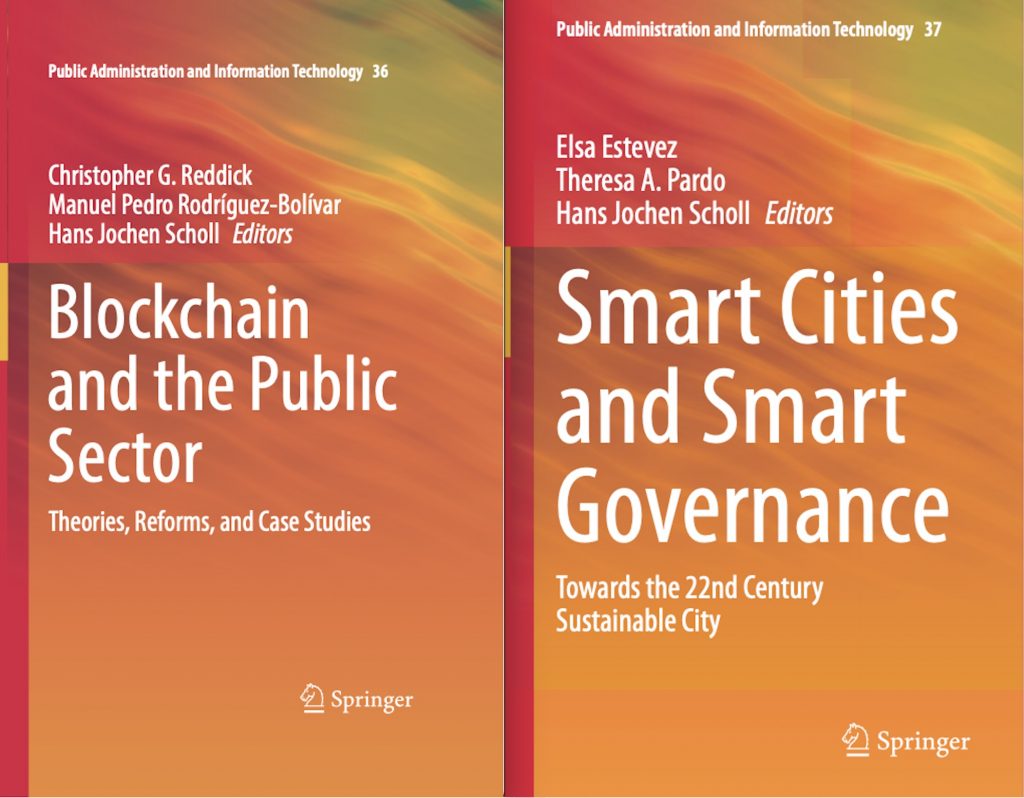On September 22, by decision of the the General Assembly, the International Federation for Information Processing (IFIP) presented the IFIP Service Award to Prof. Hans Jochen Scholl. The honor was awarded in recognition of “outstanding contributions to IFIP and the Informatics Community.”
IFIP was established in 1960 under the auspices of UNESCO. The federation’s activities are coordinated by 13 Technical Committees (TCs) which are organized into more than 100 Working Groups (WGs), bringing together over 3,500 ICT professionals and researchers from around the world to conduct research, develop standards, and promote information sharing. Each TC covers a particular aspect of computing and related disciplines.
Wrote IFIP President Mike Hinchey, “This reward is in recognition of your considerable and sustained contributions to IFIP both technically and in volunteer and support capacities. We are grateful for what you have done for IFIP, and this is a token of our appreciation.”
Upon reception of the award, Scholl stated, “Over the past two decades it has been my honor and also my obligation to help advance information and information-systems-related knowledge in academia and practice. Meeting and working with high-caliber colleagues from around the world on a number of important subjects, projects, workshops, and major conferences has always been my pleasure. I feel humbled by the award, and I thank my colleagues in the General Assembly for their kind recognition of my work.”
Scholl is member of two IFIP working groups (WG 8.5, TC8—Information Systems in Public Administration and WG 5.15, TC5—Information Technology in Disaster Risk Reduction (ITDRR)).

